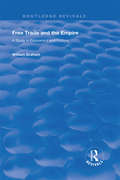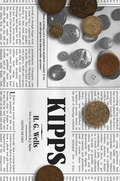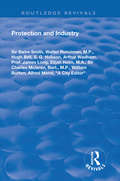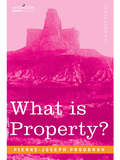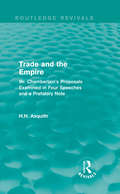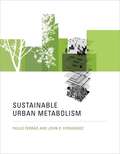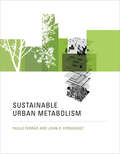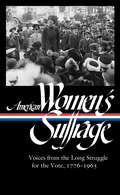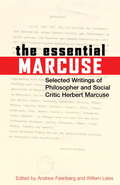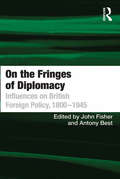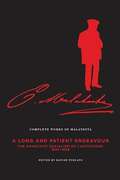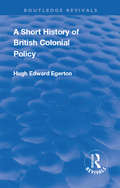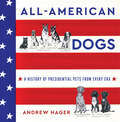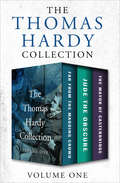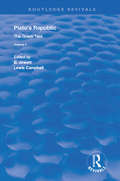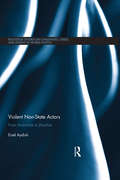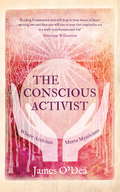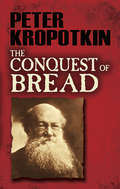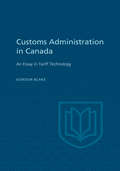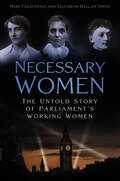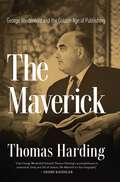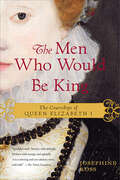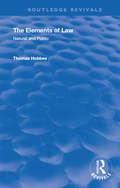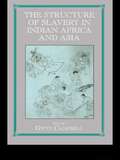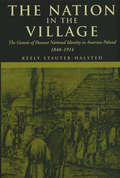- Table View
- List View
Free Trade and the Empire: A Study in Economics and Politics (Routledge Revivals)
by William Graham Filippo UgoliniOriginally published in 1904. The chief object of this pamphlet is to set forth, in a connected form, the main aspects of the great tariff controversy now for some time before the public; to treat the question more deeply and fully than the exigencies of the platform usually allow; and at the same time to treat it, as far as may be, from a scientific and as little as possible from a party point of view. The question is one both of economics and politics, and it raises the most important and delicate and complicated issues in both subjects.
Kipps: With an introduction by D.J. Taylor
by H.G. Wells'FIRST ELECTRICITY. AND THEN TELEPHONES. I FEEL AS IF I WERE LIVING IN AN H G WELLS NOVEL' DOWAGER COUNTESS OF GRANTHAM'You can enjoy the novel as a jolly yarn about faux pas - there's a bit of Kipps in most of us - but you also sense that Wells found its theme a little close to the bone . . . As social inequality threatens to rise, it's hard not to wonder - despite the happy ending - if Kipps belongs to britain's future as well as its past' GuardianOrphaned at an early age, raised by his aunt and uncle, and apprenticed for seven years to a draper, Artie Kipps is stunned to discover upon reading a newspaper advertisement that he is the grandson of a wealthy gentleman and the inheritor of his fortune. Thrown dramatically into the upper classes, he struggles desperately to learn the etiquette and rules of polite society. But as he soon discovers, becoming a `true gentleman' is neither as easy nor as desirable as it at first appears...
Protection and Industry (Routledge Revivals)
by Swire Sir Smith Walter M.P. Runciman Hugh Bell S.G. Hobson Arthur Wadham James Prof. Long Elijah M.A. Helm Charles Sir McLaren M.P Bart. William Burton Alfred Mond "A City Editor"First published in 1904, this volume emerged during a split within the Liberal Unionist Party over Joseph Chamberlain’s advocacy of Protectionism through Tariff Reform. Having originally broken with the Liberal Party over Home Rule in 1885, 1904 saw some Liberal Unionists return to the Liberal fold. The authors here constitute those departing Liberal Unionists in a multifaceted rallying call for Free Trade in the face of Protectionism. Their articles, on subjects such as Shipping, Agriculture and Engineering, assess the implications of Free Trade with a focus on each author’s specialist industry. The authors unanimously declare in favour of the system under which, they maintain, Great Britain developed unparalleled prosperity and taught other nations her industrial success. In the process, they demonstrate that trade cannot improve whilst fettered and focus on the potential for real improvements through Free Trade.
What is Property?
by Pierre-Joseph ProudhonProudhon's most famous declaration that "property is theft" comes from this, his most famous work, published in French in 1840; the English translation dates from 1890. According to Proudhon, only that which is being used is real property. Land must be lived on or farmed to be property, and goods must have been made by one's own labor to be owned. These new definitions challenge the very basis of capitalist systems, and Proudhon used them as the foundation for his writings in support of anarchy. Activists, historians, and philosophers will find themselves pondering his arguments long after they have finished reading.
Routledge Revivals: Mr. Chamberlain's Proposals Examined in Four Speeches and a Prefatory Note (Routledge Revivals Ser.)
by H.H. AsquithFirst published in 1903, this collects together speeches given by H.H. Asquith to refute the charge that those who defended Free Trade at the turn of the century were ignorant or indifferent to actual and potential economic forces, and also clung to obsolete conceptions of the Empire. The author intends to vindicate Britain’s contemporaneous fiscal system, not as academic dogma, but as a concrete and living financial policy. In pursuit of this he undertakes to expose what he argues are the "blunders of fact and logic" of the new protectionist campaign, illustrated with extracts from the speeches of the Chancellor of the Exchequer Austen Chamberlain — whose advocacy of protectionism provides the focus for the collected speeches.
Sustainable Urban Metabolism
by Paulo Ferrão John E. FernándezUrbanization and globalization have shaped the last hundred years. These two dominanttrends are mutually reinforcing: globalization links countries through the networked communicationsof urban hubs. The urban population now generates more than eighty percent of global GDP. Citiesaccount for enormous flows of energy and materials -- inflows of goods and services and outflows ofwaste. Thus urban environmental management critically affects global sustainability. In this book,Paulo Ferrão and John Fernndez offer a metabolic perspective on urban sustainability, viewingthe city as a metabolism, in terms of its exchanges of matter and energy. Their book provides aroadmap to the strategies and tools needed for a scientifically based framework for analyzing andpromoting the sustainability of urban systems. Using the concept of urbanmetabolism as a unifying framework, Ferrão and Fernandez describe a systems-oriented approachthat establishes useful linkages among environmental, economic, social, and technical infrastructureissues. These linkages lead to an integrated information-intensive platform that enablesecologically informed urban planning. After establishing the theoretical background and describingthe diversity of contributing disciplines, the authors sample sustainability approaches and tools,offer an extended study of the urban metabolism of Lisbon, and outline the challenges andopportunities in approaching urban sustainability in both developed and developing countries.
Sustainable Urban Metabolism
by Paulo Ferrao John E. FernandezA unified framework for analyzing urban sustainability in terms of cities' inflows and outflows of matter and energy.Urbanization and globalization have shaped the last hundred years. These two dominant trends are mutually reinforcing: globalization links countries through the networked communications of urban hubs. The urban population now generates more than eighty percent of global GDP. Cities account for enormous flows of energy and materials—inflows of goods and services and outflows of waste. Thus urban environmental management critically affects global sustainability. In this book, Paulo Ferrão and John Fernández offer a metabolic perspective on urban sustainability, viewing the city as a metabolism, in terms of its exchanges of matter and energy. Their book provides a roadmap to the strategies and tools needed for a scientifically based framework for analyzing and promoting the sustainability of urban systems. Using the concept of urban metabolism as a unifying framework, Ferrão and Fernandez describe a systems-oriented approach that establishes useful linkages among environmental, economic, social, and technical infrastructure issues. These linkages lead to an integrated information-intensive platform that enables ecologically informed urban planning. After establishing the theoretical background and describing the diversity of contributing disciplines, the authors sample sustainability approaches and tools, offer an extended study of the urban metabolism of Lisbon, and outline the challenges and opportunities in approaching urban sustainability in both developed and developing countries.
American Women's Suffrage: Voices from the Long Struggle for the Vote 1776-1965 (The Library of America)
In their own voices, the full story of the women and men who struggled to make American democracy wholeWith a record number of female candidates in the 2020 election and women's rights an increasingly urgent topic in the news, it's crucial that we understand the history that got us where we are now. For the first time, here is the full, definitive story of the movement for voting rights for American women, of every race, told through the voices of the women and men who lived it. Here are the most recognizable figures in the campaign for women's suffrage, like Elizabeth Cady Stanton and Susan B. Anthony, but also the black, Chinese, and American Indian women and men who were not only essential to the movement but expanded its directions and aims. Here, too, are the anti-suffragists who worried about where the country would head if the right to vote were universal. Expertly curated and introduced by scholar Susan Ware, each piece is prefaced by a headnote so that together these 100 selections by over 80 writers tell the full history of the movement--from Abigail Adams to the 1848 Declaration of Sentiments to the ratification of the Nineteenth Amendment in 1920 and the limiting of suffrage under Jim Crow. Importantly, it carries the story to 1965, and the passage of the Voting and Civil Rights Acts, which finally secured suffrage for all American women. Includes writings by Ida B. Wells, Mabel Lee, Margaret Fuller, Sojourner Truth, Frances Ellen Watkins Harper, Frederick Douglass, presidents Grover Cleveland on the anti-suffrage side and Woodrow Wilson urging passage of the Nineteenth Amendment as a wartime measure, Jane Addams, and Charlotte Perkins Gilman, among many others.
The Essential Marcuse
by William Leiss Andrew Feenberg Herbert MarcuseThe Essential Marcuse provides an overview of Herbert Marcuse's political and philosophical writing over four decades, with excerpts from his major books as well as essays from various academic journals. The most influential radical philosopher of the 1960s, Marcuse's writings are noteworthy for their uncompromising opposition to both capitalism and communism. His words are as relevant to today's society as they were at the time they were written.From the Trade Paperback edition.
On the Fringes of Diplomacy: Influences on British Foreign Policy, 1800–1945
by Antony BestIn recent decades the study of British foreign policy and diplomacy has broadened in focus. No longer is it enough for historians to look at the actions of the elite figures - diplomats and foreign secretaries - in isolation; increasingly the role of their advisers and subordinates, and those on the fringes of the diplomatic world, is recognised as having exerted critical influence on key decisions and policies. This volume gives further impetus to this revelation, honing in on the fringes of British diplomacy through a selection of case studies of individuals who were able to influence policy. By contextualising each study, the volume explores the wider circles in which these individuals moved, exploring the broader issues affecting the processes of foreign policy. Not the least of these is the issue of official mindsets and of networks of influence in Britain and overseas, inculcated, for example, in the leading public schools, at the Universities of Oxford and Cambridge, and in gentlemen's clubs in London's West End. As such the volume contributes to the growing literature on human agency as well as mentalité studies in the history of international relations. Moreover it also highlights related themes which have been insufficiently studied by international historians, for example, the influence that outside groups such as missionaries and the press had on the shaping of foreign policy and the role that strategy, intelligence and the experience of war played in the diplomatic process. Through such an approach the workings of British diplomacy during the high-tide of empire is revealed in new and intriguing ways.
The Complete Works of Malatesta V.III: The Anarchist Socialism of L'Agitazione, 189798
by Davide Turcato Errico Malatesta Paul SharkeyThe first in AK Press's ten-volume Complete Works of Malatesta. This one (volume three chronologically) focuses on two very important years in Errico Malatesta's life, when he returned to Italy to edit L'Agitazione. This volume begins the series with a bang.
A Short History of British Colonial Policy (Routledge Revivals)
by Hugh Edward EgertonThis volume discusses a short history of British Colonial policy. With all its faults the book represents much reading and some thought. In writing what is, to some extent, a history of opinion, it has been impossible altogether to suppress my own individual opinions. I trust, however that I have not seemed to attach importance to them. In dealing with the later periods, I remembered Sir Walter Raleigh's remark on the fate which awaits the treatment of contemporary history; but obscurity may claim its compensations, and atleast I am not conscious of having written under the bias of personal or party prejudice.
All-American Dogs: A History of Presidential Pets from Every Era
by Andrew HagerFrom historian-in-residence at the Presidential Pet Museum, Andrew Hager, comes a fond, fascinating, and often surprising look at the dogs who were the best friends of the presidents, featuring unforgettable photographs.President Biden’s German shepherds, Major and the late Champ, are the latest in a long line of presidential dogs. Dating all the way back to George Washington, dogs have been constant companions to nearly all of America’s presidents. Of the past 46 presidents, 31 have had at least one dog at 1600 Pennsylvania Ave.Organized by historical eras, All-American Dogs will take readers through the captivating history of the White House’s four-legged friends, the impact they had on their owner-in-chiefs, and, ultimately, American history. From the assassination of President’s Lincoln’s dog after Lincoln’s own death to President’s Hoover’s Belgian shepherd, King Tut, who helped President Hoover win the election after appearing in a campaign photo, these furry members of the first family often had a lasting impact on the administrations that kept them.As historian-in-residence at the Presidential Pet Museum, Andrew Hager will include original research and rare photographs from the National Archives to trace the history of America’s first dogs. From post-Revolutionary dogs, to Civil War era dogs, to Cold War dogs, Hager will show the differences and similarities of how our nation viewed man’s best friend.Readers will learn not only past presidents’ dogs in each historical era, but also the cultural history of dogs as pets, and the ways in which Americans’ relationships with dogs has evolved over the past two centuries.
The Thomas Hardy Collection Volume One: Far from the Madding Crowd, Jude the Obscure, and The Mayor of Casterbridge
by Thomas HardyThree classics of the Victorian era from the great novelist. This volume includes three iconic novels by the author known for chronicling nineteenth-century English society. Far from the Madding Crowd: A tale of love, tragedy, and a woman brave enough to defy convention. Jude the Obscure: A young stonemason who had aspired to a career in academia finds himself trapped in an unhappy marriage in this novel of passion and heartbreak. The Mayor of Casterbridge: A wealthy mayor harbors a terrible secret in this story of addiction, love, and regret.
Plato's Republic: The Greek Text (Routledge Revivals)
by B. JOWETT AND LEWIS CAMPBELLFirst published in 1894, this book consists of essays by professors Jowett and Campbell about the classic Greek philosopher Plato, and his famous and widely read dialogue The Republic, which is considered one the world’s most influential works. Plato is believed to be the pivotal figure in the development of Western philosophy, and the editors explore this throughout the book along with relations to other Greek dialogues and authors.
Violent Non-State Actors: From Anarchists to Jihadists (Routledge Studies on Challenges, Crises and Dissent in World Politics)
by Ersel AydinliGiven the importance of violent non-state actors (VNSA) and their evolving role in global politics, dynamic frameworks of analysis are needed both to trace historical trajectories in the evolution of violent non-state actorness and to identify emerging patterns by examining modern day cases. This book examines the defining characteristics and evolutionary dynamics of VNSAs, and introduces a framework based on their autonomy, representation and influence providing a comparative analysis of the late 19th and early 20th centuries’ Anarchist movement and the modern-day Jihadist network. It explores the distinct characteristics of the Anarchists and Jihadists as VNSAs with global potential, not just describing them, but also seeking to understand what they are instances of. With a longitudinal analysis, the book also considers the types of changes that have occurred in the past 150 years and the possible role VNSAs may play in current and future power polity shifts away from states toward non-state actors. It concludes with both theoretical implications for the study of non-state actors and transnational relations, and practical implications for government agencies or private groups tasked with finding ways of countering such violent non-state actors. This important book will be of interest to students and scholars of international relations, political science, and terrorism/security studies. It will also be of interest to practitioners in the security services including think-tank analysts and government security analysts.
The Conscious Activist
by James O'DeaAn extraordinary and rousing manifesto from award-winning author James O'Dea, The Conscious Activist is both a compelling narrative and a deep reflection on the demands of mystical realization and effective activism. Throughout the book, O'Dea poses that an integration of the two has the power to permanently transform the social order and to wake up humanity from its course of rapid self-destruction. Divided into two parts, Part I offers parallel narratives of author James O'Dea's training and spiritual development as both a mystic and an activist. The mystic, he explains, must move past petty ego concerns in order to experience oneness with each other and our divine source. The activist, on the other hand, explores the role of passion and conscience in activating social change. In Part II, O'Dea pursues this fascinating concept of a meeting ground between the two worlds, where spirituality and action unite to spark an accelerated transition towards our greater goal: a more evolved civilization. He asks us all to become conscious activists - to learn, collectively, how to move beyond our rigid conformity to beliefs of the past and its archaic structures of power and control.
The Conquest of Bread
by Peter KropotkinBorn a Russian prince, Peter Kropotkin (1842–1921) rejected his title and wealth to spend his life in pursuit of social justice and equality. His last major work, The Conquest of Bread, surveys economic methods for the satisfaction of human needs. The 1892 treatise also outlines the revolutionary path to his vision of utopia: an anarchist communist society.Kropotkin criticizes the effects of feudalism and capitalism, noting that both systems exacerbate poverty and promote privilege, even in times of abundance. Citing the human propensity toward voluntary cooperation, he proposes the establishment of free, self-sufficient anarchic communesand outlines practical considerations of production and distribution. The author supports his theories with examples from the French rebellions of 1789, 1848, and 1871, and his reasoning anticipates aspects of twentieth-century revolutions in Russia, Germany, and Spain. At a time when many thinkers employed the new Darwinian concept of "survival of the fittest" to justify their capitalist and imperialist goals, Kropotkin pointed out the historic patterns of humanity's best success under cooperative circumstances. A century later, his economic analysis remains fresh and relevant.
Customs Administration in Canada
by Gordon BlakeThe Canadian tariff has been a singularly faithful mirror of economic and political change in this country, but it is a glass through which much has been seen darkly. This study is an attempt to improve the view. It traces the administration of the tariff through Canadian history, and provides the first complete treatment of the subject and its significance for the country's commerce.Dr. Blake's work begins with customs administration during the French régime, and follows with the British period---the struggle for responsible government, the problem of smuggling, and the establishment of free ports. The author discusses such early problems as customs union in the Canadas, reciprocity and the Galt tariff, and ad valorem duties and their administrative consequences. Confederation and its effect on customs administration are analysed, as are the tariff schedule up to modern times, valuation and the effects of war, and the system and problems of appraisement. The customs establishment since Confederation is studied under such heads as organization, problems of adjustment, and political patronage in the service. Finally, the Canadian Tariff Board is put under examination.This study does not constitute an argument on either side of the policy controversy as regards free trade or protection nor is it a linearly historical treatment of Canadian commercial policy. It is an attempt to fit into the Canadian environment certain more or less theoretical concepts which may serve to explain the tariff as an important economic institution. It will be of interest to students of Canadian economic history, particularly in the area of national revenue.
Necessary Women: The Untold Story of Parliament’s Working Women
by Mari Takayanagi Elizabeth Hallam SmithDrawing on unique research based on the Parliamentary archives, government records and family history sources, Mari Takayanagi and Elizabeth Hallam Smith show how women touched just about every aspect of the life of Parliament, largely unacknowledged - until now. Along the way, we meet an array of impressive and life-affirming women: from the Rickman sisters eavesdropping on Parliamentary debates from the roof space above the Commons in the 1820s; to Jane, the doyenne of Bellamy's, purveyors of tea, chops, steaks, pies and wine to MPs in the 1840s; and to Jean Winder, the first female Hansard reporter, who fought for years after being appointed in 1944 to be paid the same as her male counterparts. As historians and Parliamentary insiders themselves, Takayanagi and Hallam Smith bring these unsung heroes to life, charting along the way the changing context for working women within and beyond the Palace of Westminster.
The Maverick: George Weidenfeld and the Golden Age of Publishing
by Thomas HardingThe captivating story of the famed publisher George Weidenfeld, from his struggles as an Austrian-Jewish refugee in London to his rise as a world-renowned literary figure. After arriving in London just before World War Two as a penniless Austrian-Jewish refugee, George Weidenfeld went on to transform not only the world of publishing but the culture of ideas. The books that he published include momentous titles such as Lolita, Double Helix, The Group, and The Hedgehog and the Fox, with authors he championed ranging from Joan Didion, Mary McCarthy, JD Salinger, and Edna O&’Brien to Henry Miller, Harold Wilson, Saul Bellow, and Henry Kissinger. His role as publisher brought him into the orbit of influential figures such as George Bush, Ann Getty, Donald Trump, and LBJ. In this first biography, Thomas Harding provides a full, unvarnished, and at times difficult history of this complex and fascinating character. Throughout his long career, he was written about in the New York Times, the Washington Post, Time Magazine, Vanity Fair, and other publications. Was he, as described by some, the &“greatest salesperson,&” &“the world&’s best networker,&” &“the publisher&’s publisher,&” and &“a great intellectual&”? Was his lifelong effort to be the world&’s most famous host a cover for his desperate loneliness? Who, in fact, was the real George Weidenfeld and how did he rise so successfully within the ranks of New York and London society? Drawing on author correspondence, internal memos, and other documents buried deep in the secret publishing files of Weidenfeld & Nicolson, Harding crafts a portrait of the publisher's life that is inextricable from the efforts and intricacies of putting a book into the world. Structured around twenty books associated with George Weidenfeld, and intercut with explorations of contemporary concerns such as cancel culture, the right to publish, freedom of speech, and separating the art from the artist, The Maverick tells the captivating story behind the life of this iconic publisher.
The Men Who Would Be King: The Courtships of Queen Elizabeth I
by Josephine Ross“Splendid stuff, ‘history with attitude.’ Written with energy and aplomb.” —The Times (London)The colorful, often tempestuous courtships of Queen Elizabeth I of England (the “virgin Queen”) are brought to breathtaking life in The Men Who Would Be King, a thrilling, utterly fascinating popular history by Josephine Ross. The highly respected author of The Winter Queen and The Tudors, Ross captures all the splendors of the royal court, and all the delicious intrigues surrounding the romances of the powerful daughter of King Henry VIII during her glorious reign. The Men Who Would Be King is spirited British history, captivating and eminently readable, that will equally delight fans of historical nonfiction, Tudor aficionados, and anyone who loves the bestselling novels of Philippa Gregory.
The Elements of Law: Natural and Politic (Routledge Revivals)
by Thomas HobbesOriginally published in 1889, Ferdinand Tonnies published versions of two works by Thomas Hobbes. His editions of The Elements of Law: Natural and Politic and of Behemoth: or The Long Parliament were the first modern critical editions, based on manuscripts of works by Hobbes. Completed in 1640, The Elements of Law was Hobbes's first systematic political work. The book helps us see Hobbes's mind at work, for it is the first version of his later political works.
Structure of Slavery in Indian Ocean Africa and Asia
by Gwyn CampbellThe abolition of slavery in and around the Western Indian Ocean have been little studied. This collection examines the meaning of slavery and its abolition in relation to specific indigenous societies and to Islam, a religion that embraced the entire region, and draws comparisons between similar developments in the Atlantic system. Case studies include South Africa, Mauritius, Madagascar, the Benadir Coast, Arabia, the Persian Gulf and India. This volume marks an important new development in the study of slavery and its abolition in general, and an original approach to the history of slavery in the Indian Ocean and Asia regions.
The Nation in the Village: The Genesis of Peasant National Identity in Austrian Poland, 1848–1914
by Keely Stauter-HalstedHow do peasants come to think of themselves as members of a nation? The widely accepted argument is that national sentiment originates among intellectuals or urban middle classes, then "trickles down" to the working class and peasants. Keely Stauter-Halsted argues that such models overlook the independent contribution of peasant societies. She explores the complex case of the Polish peasants of Austrian Galicia, from the 1848 emancipation of the serfs to the eve of the First World War. In the years immediately after emancipation, Polish-speaking peasants were more apt to identify with the Austrian Emperor and the Catholic Church than with their Polish lords or the middle classes of the Galician capital, Cracow. Yet by the end of the century, Polish-speaking peasants would cheer, "Long live Poland" and celebrate the centennial of the peasant-fueled insurrection in defense of Polish independence. The explanation for this shift, Stauter-Halsted says, is the symbiosis that developed between peasant elites and upper-class reformers. She reconstructs this difficult, halting process, paying particular attention to public life and conflicts within the rural communities themselves. The author's approach is at once comparative and interdisciplinary, drawing from literature on national identity formation in Latin America, China, and Western Europe. The Nation in the Village combines anthropology, sociology, and literary criticism with economic, social, cultural, and political history.
